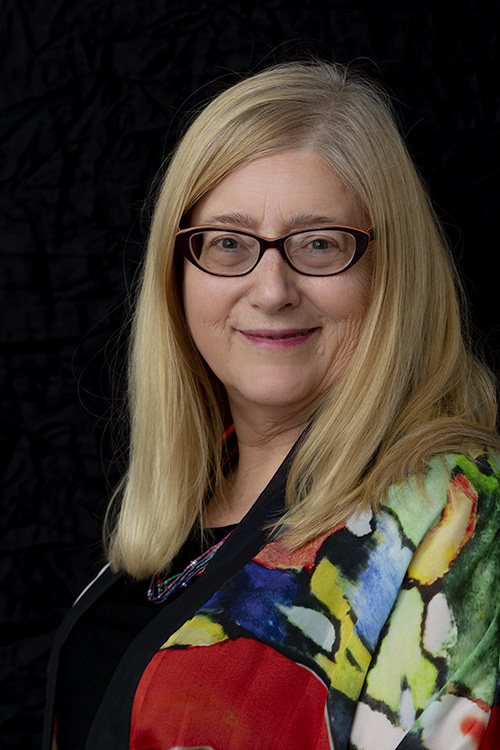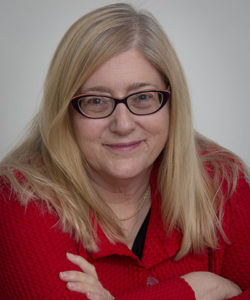Life in the Third Act with Plague.
What it’s like to get what you want in a pandemic
I recently read a fabulous article [registration required] by Caitlin Moran with the subtitle “Goodbye, nice, jolly, happy Caitlin. Hello, angry Caitlin.”
Moran’s premise is that women spend most of our adult lives drunk on a biochemical cocktail of estrogen and endorphins, and that the stereotypical angry post-menopausal woman is just waking up to all the crap she’s put up with for decades. Objectification, childrearing, the double shift, the lost opportunities for advancement—and then one day the happy drugs drain from your system and reality bites your butt. The kids are grown. The husband has fled with a lower mileage, estrogen-filled edition of you. And after decades of pay discrimination you may not have adequate retirement savings for your longer-than-male third act. Moran writes, “Like someone in the midst of a regretful and anxious hangover, you start to ask yourself: have I made a fool of myself? Have I wasted my time? While I was drunk, did I… did I make a mistake?” And, suddenly sober, women get angry.
Moran is right on the money about that great and unpleasant awakening at menopause (mine included a run-in with parasitic mites and a divorce, even though I hadn’t gotten married).
As my former minister, Reverend Mark Belletini, once said: “When people ask why women are angry, I tell them women are not nearly angry enough.”
Moran is in her forties: She ends her article by predicting what it’s like in our Third Act, when we regain perspective and strike out on a new path. Her concept includes starting a charity and hanging a bunch of windchimes in the backyard. Good start! At 66 I can speak from experience about Life in the Third Act – with Plague.
After the intense transition at menopause comes a new kind of serenity that is driven, not by hormones, but by greater self-acceptance and a renewed sense of agency.
Society may not recognize our beauty, but we ourselves can see it clearly. And, sure, we’ve been living for others for decades, but with any luck we have time to pursue what is most important for ourselves in the decades ahead. Research shows that women’s sense of well-being hits a low point just after age 50 and then increases through the mid-eighties, almost to the very end of life.
The path each woman takes to achieve her serenity is a highly individual mix that can include:
- Cultivating our neglected talents. Remember how you loved that painting class in high school? What better time to resume than now? Maybe you can’t go to an in-person class during COVID, but there are plenty of online creative resources.
- Going back to reclaim who we were before careers and children. Remember how you always wanted to be a paleontologist but didn’t see how to make money at it? What a great time to read up on your favorite field!
- Connecting with others. Most of the people you’ve ever loved are still here, on the phone, on Facebook, or on your church online coffee hour.
- Contributing our energies to meaningful causes. Isn’t it time for a revolution of old women? This year, of all years? There are plenty of ways to get involved, from letter writing to canvas calls.
- Reconnecting with our sensual and sexual natures. Regardless of circumstance, we can connect with our erotic natures. One great way that’s open to us all is writing about our memories and fantasies. I’ve just set up a new online erotic writing group, Elderotica, and would love to set up more, or help you set up and lead your own Elderotica writing group. Email me if you are interested.
- Actively cultivating serenity through new spiritual paths. All over the country, churches, Zen centers, and many other religious and spiritual organizations are putting their services and meditation sessions online. What a great time to explore spiritual options!
- Spending time in wilderness. Trees don’t get coronavirus. Walking through a forest is a great boost to well-being.
I always wanted to be a writer. When I was twelve, I committed myself to publish my first novel by my twentieth birthday. It didn’t happen. Instead I had careers in finance and biotech, raised four children and weathered two divorces. It’s been a full life that provides lots of material to write about. When I reached the Third Act, I made a list of the books I wanted to write and started writing them. I connected with my church in ways that were meaningful to me, including singing (pre-virus) and teaching adult education writing classes (now online). I began to go out in nature every day and went to the gym four times a week. I enjoyed my body and my partner’s body. And I got involved early in political canvassing for this election year. These activities were driven by my internal values and priorities. As a result, there is no doubt that my sense of well-being increased in recent years.
What changed when the pandemic arrived? What does a Third Act look like in a plague year? It all depends on circumstance. Women who are sheltering alone, or with a chronically ill partner, or who have not yet retired and work in high-risk careers, maybe having a difficult time.
But despite the necessary loss of in-person contact with family and friends, my guilty secret is that life is even more serene and rewarding than before. There are fewer distractions and there is more time to do exactly what I want to do. Online church, online teaching, and phone canvassing all take less time than commuting and participating in person. Same with working out at home. With the malls closed, it dawned on me that I already have what I need, and shopping is irrelevant. Cooking is more satisfying than going out. My partner and I make love when the mood strikes us. A retired person can still fill up her schedule, but a retired writer in a pandemic can write all day without interruption.
The serenity of the Third Act arises, paradoxically, from the knowledge that time is limited. We are long past the teenage fantasy of immortality. Even before the pandemic, being in my sixties meant I knew that every day was precious. We can react to the passage of time by being anxious, or instead by living ever more fully in the present, where each leaf on the tree outside the window is a universe and each moment is eternity. These long warm days of pandemic summer, so alike that it’s hard to know what day it is, are just one big Now. And right now, I have everything I want.
I’m interested in what your life in the Third Act with Plague is all about.
Please Comment below to share how the pandemic has affected your plans and your serenity.
With many thanks, and all best wishes,
Stella.



2 Responses
The Third Act of my life comes down to nailing down what I really want to do, and adding and subtracting friends. The friends who want to continue our connection, bring an energy and support into my life during COVID-19. It’s hard to hit the “alt-control-delete-button” on a friend’s contact information. However, when I think how many times the communication between us has rested on my shoulders—the decision is easy. I come to think of this as de-cluttering–as I would my wardrobe and house. Friendships are as valuable to me as husband, but really, if the relationship was one-sided, it never would have lasted 30 years. As a (published) writer, I want to continue working on my craft and developing page-turning stories. Accepting that COVID-19 has changed how we socially interact, how we self-examine what direction we really want to take—and how to get there—is exciting, challenging, rewarding, and maybe even a little scary.
I love how you frame this as an adventure. Because it truly is, even if not of our choosing.